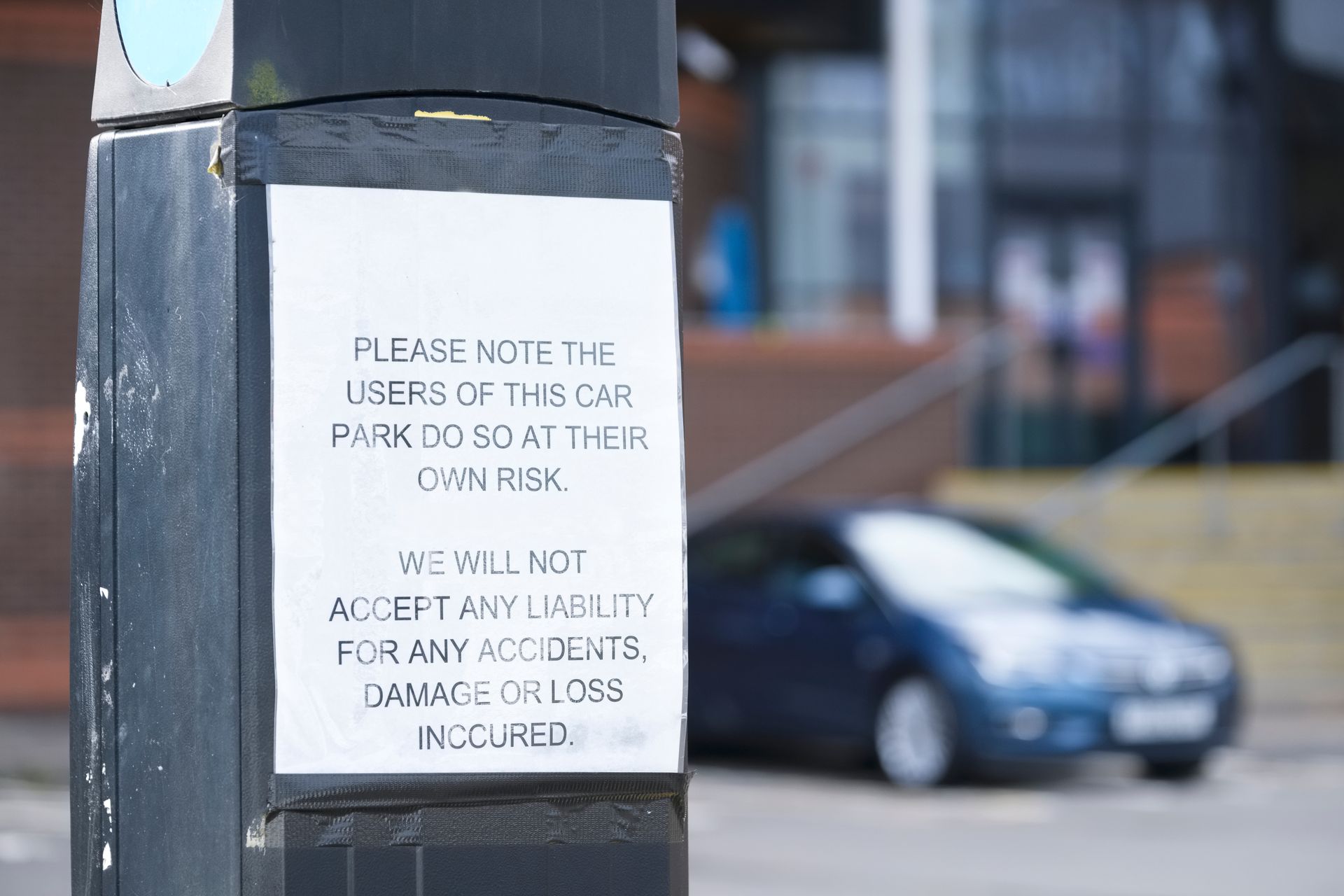Blog

Running a business comes with numerous challenges, and one of the most concerning is the potential for personal injury claims. While legitimate injury claims can arise, there is always the risk of encountering a false or fraudulent claim, which can cost your business time, money and damage to its reputation.
Knowing how to identify and defend against such claims is crucial for protecting your interests and making sure your business remains secure.
What Is a False Personal Injury Claim?
A false personal injury claim occurs when an individual exaggerates or fabricates injuries allegedly sustained on your business property. The motivation behind such claims can vary, but typically, people file these claims in an attempt to receive financial compensation for injuries that are fabricated or were unrelated to their business practices or employees.
False claims can take many forms, including:
- Faked Injuries: The individual claims to have been injured, but there is no evidence or witness corroboration of the incident.
- Exaggerated Injuries: The injury exists but is not as severe as the claimant suggests, and they may seek higher compensation than necessary.
- Staged Accidents: The individual intentionally stages an accident, such as slipping and falling, to create the appearance of negligence on the part of your business.
While these claims can be difficult to detect, there are certain red flags and preventative measures that can help your business avoid falling victim to fraudulent claims.
How to Identify a Frivolous Personal Injury Claim
Lack of Witnesses or Evidence
A legitimate personal injury claim is often accompanied by witness statements, surveillance footage or other evidence that confirms the incident occurred. If the claimant is unable to provide any supporting documentation or the incident took place in an area that is well-monitored (such as a business with security cameras), this could indicate that the claim is fabricated.
Inconsistent or Vague Details
False claimants may struggle to keep their story straight. Look for inconsistencies in the individual’s account of the incident, such as differing times, locations or explanations of how the injury occurred. Vague or non-specific details about the accident should also raise suspicion, as frivolous claimants may intentionally avoid providing specifics to make their story harder to refute.
Immediate Focus on Compensation
If the individual is focused solely on securing a financial settlement or begins discussing compensation immediately after the incident, it could indicate their primary goal is monetary gain.
Previous Claims History
If the individual has a history of filing personal injury claims against multiple businesses, it may indicate a pattern of fraudulent behavior. While previous claims don’t automatically mean the current claim is false, it’s important to investigate further if you suspect a person pursues frivolous claims as a career.
Delayed Reporting of the Incident
Legitimate personal injury claims are usually reported immediately after the incident occurs. If the claimant waits days or weeks to report the injury, it could be a sign that they are trying to fabricate a claim, especially if they did not seek medical attention right away. Delayed reports make it harder to gather evidence, which fraudulent claimants may exploit.
Steps to Defend Your Business Against False Injury Claims
Maintain Thorough Documentation
Be sure to immediately document every detail of the incident, including the location, time and any surrounding circumstances. Take photos of the scene, particularly focusing on areas where the claimant alleges the injury occurred. Gather statements from any witnesses present at the time, and make sure your employees are trained to report incidents accurately and thoroughly.
Use Surveillance Systems
Investing in surveillance cameras around your business property can serve as a powerful deterrent to fraudulent claims. Video footage can often reveal whether an accident actually occurred or if the claimant is mischaracterizing the events that led to their injuries. Be sure to regularly check that your cameras are functioning properly and capturing high-quality footage.
Conduct Regular Safety Audits
Proactively addressing safety hazards in your business can help you avoid both legitimate and false personal injury claims. Regularly inspect your property for potential dangers, such as slippery floors, uneven surfaces or malfunctioning equipment. Keep a detailed log of maintenance and repairs, as this documentation can serve as evidence of your commitment to safety in the event of a claim.
Interview the Claimant
If a claim is made, conduct an interview with the claimant to gather as much information as possible. Ask detailed questions about the incident and their injuries. This not only helps you assess the legitimacy of the claim but also creates a record of their statements that can be compared for consistency over time.
Work with a Legal Professional
The best defense against false injury claims is to work with an experienced general liability defense attorney who can guide you through the claims process and build a strong case in your defense. A skilled Atlanta business liability defense lawyer will know how to investigate the claim, gather evidence and challenge the claimant’s account in court if necessary.
Protect and Defend Your Atlanta Business From Frivolous Claims
If your business is facing a personal injury claim, don’t wait to take action. Here at the Law Office of Cameron Hawkins, our general liability litigation attorneys will review your case, gather the necessary evidence and provide the strong legal defense you need to safeguard your business.
Contact us today for a free consultation or give us a call at 678-921-4225.











